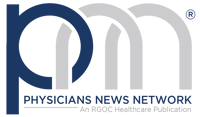Each year, the National Association of Counties (NACo) recognizes innovative county government programs that support and enhance services for residents, and this year, the Los Angeles County Department of Public Health earned 14 Achievement Awards from NACo.
“As public health workers in Los Angeles County, our goal is to keep our communities safe and healthy by providing the best services possible. I want to thank the staff and programs at Public Health for their dedication to innovative and effective public service,” said Barbara Ferrer, Ph.D., M.P.H., M.Ed., Director of the Los Angeles County Department of Public Health. “We thank the National Association of Counties for the recognition and are honored to work alongside our visionary colleagues across the country who work to improve the quality of life for all.”
The 2023 Los Angeles County Department of Public Health honorees include:
- Community-based COVID-19 Vaccination Points of Dispensing Sites – Public Health transformed its large mass vaccination sites that solely provided COVID-19 vaccinations to seven community Points of Dispensing (PODs). These sites served as a trusted community resource in underserved communities and created an accessible “one-stop shop” for nearby residents to receive community health services.
- Countywide Unified COVID-19 Call Center Network – To respond in a timely manner to COVID-related inquiries and provide LA County residents with credible, trusted health information and resources to reduce the spread of COVID infection, Public Health created the Countywide Unified COVID-19 Call Center Network. Over the course of three years, the Countywide Unified COVID-19 Call Center Network has responded to more than 2.3 million COVID-19-related calls and saved countless lives.
- COVID-19 Community Equity Fund – To reduce the spread of COVID-19 in disproportionately impacted communities across LA County, Public Health developed the COVID-19 Community Equity Fund. In an effort to reduce the disproportionate impact of COVID-19, the Fund enhanced and supported collaboration with community-based organizations with cultural expertise and community trust to reach historically underserved communities in communities where health disparities from COVID-19 persisted and established a public-private partnership that provided funding, training, collaboration opportunities, and technical assistance to community organizations to build their internal infrastructure and workforce to sustain prevention efforts in under-served communities.
- Telehealth Therapeutics – Public Health launched the Telehealth Therapeutics Program, the first public health-sponsored telehealth service for COVID-19 therapeutics in the state of California, to ensure equitable and timely access to treatment for all COVID-19-positive individuals.
- MPox Vaccination Awareness & Outreach – Public Health responded to the mpox outbreak in Los Angeles County by leveraging existing partnerships with community health clinics and community-based organizations to raise mpox awareness, promoting vaccine utilization among affected community members, and facilitating vaccine access.
- MPox Sequencing – Public Health partnered with clinical laboratories to develop an mpox sequencing surveillance network and to provide valuable information to local epidemiologists as well as the CDC regarding high risk, immunocompromised patients who are non-responsive tecovirimat treatment.
- African American Infant and Maternal Mortality Prevention Initiative – Public Health launched the African American Infant and Maternal Mortality Initiative as a countywide response to address the disparity that Black women/birthing people face during pregnancy and childbirth. The initiative created a Black-centered space, mobilized advocates, increased access to resources built from the voices of Black women/birthing people, and developed communications designed to shift the narrative from death and dying to joy and health.
- Syphilis Screening Models – In partnership with County agencies and community-based organizations, Public Health developed three new testing models to deliver non-traditional syphilis screening models to test and treat women of reproductive age with undiagnosed syphilis who may not otherwise be tested in routine healthcare settings.
- Temporary Dentures For People Experiencing Homelessness – Public Health and partners launched Temporary Dentures for People Experiencing Homelessness to increase access to dental services by providing dental care in a location where vulnerable populations receive other essential services such as meals, clothing, and showers, and to increase the dental workforce in community-based settings by exposing students to working with underserved populations and encouraging the continuation of work in underserved communities after graduation.
- Health Facilities Inspections Digital Library – To improve efficiency and streamline the storage, accessibility and record archival processes of complaint investigations, federal recertification surveys, and state licensing inspections, Public Health created the Digital Library where all paper forms can be scanned, saved and retrieved in electronic format and organized securely in a cloud-based repository.
- Exide Community Engagement – Public Health, in partnership with community residents, leaders and agencies, other county departments, and elected officials, developed and implemented several projects within the Exide impacted communities to address the concerns and generate solutions to improve the health and well-being of these communities.
- Food Redistribution – Public Health established a pilot partnership with a technology-based company that developed a food donation mobile application to match 50 institutional donors with community-based organizations that could quickly redistribute the surplus food to clients.
- Rabid Bat Outreach – Public Health developed a multipronged, targeted rabid bat education and outreach campaign to address the general lack of awareness about bat rabies.
- Camps & Schools Program – Public Health established a local public health permit and registration system with minimum requirements for the protection of the health and safety of campers participating in a Children’s Camp.
The National Association of Counties (NACo) serves nearly 40,000 county elected officials and 3.6 million county employees. Founded in 1935, NACo unites county officials to advocate county priorities in federal policymaking, promote exemplary county policies and practices, nurture leadership skills and expand knowledge networks, optimize county and taxpayer resources and cost savings, and enrich the public’s understanding of county government.
Click Here to learn more.

